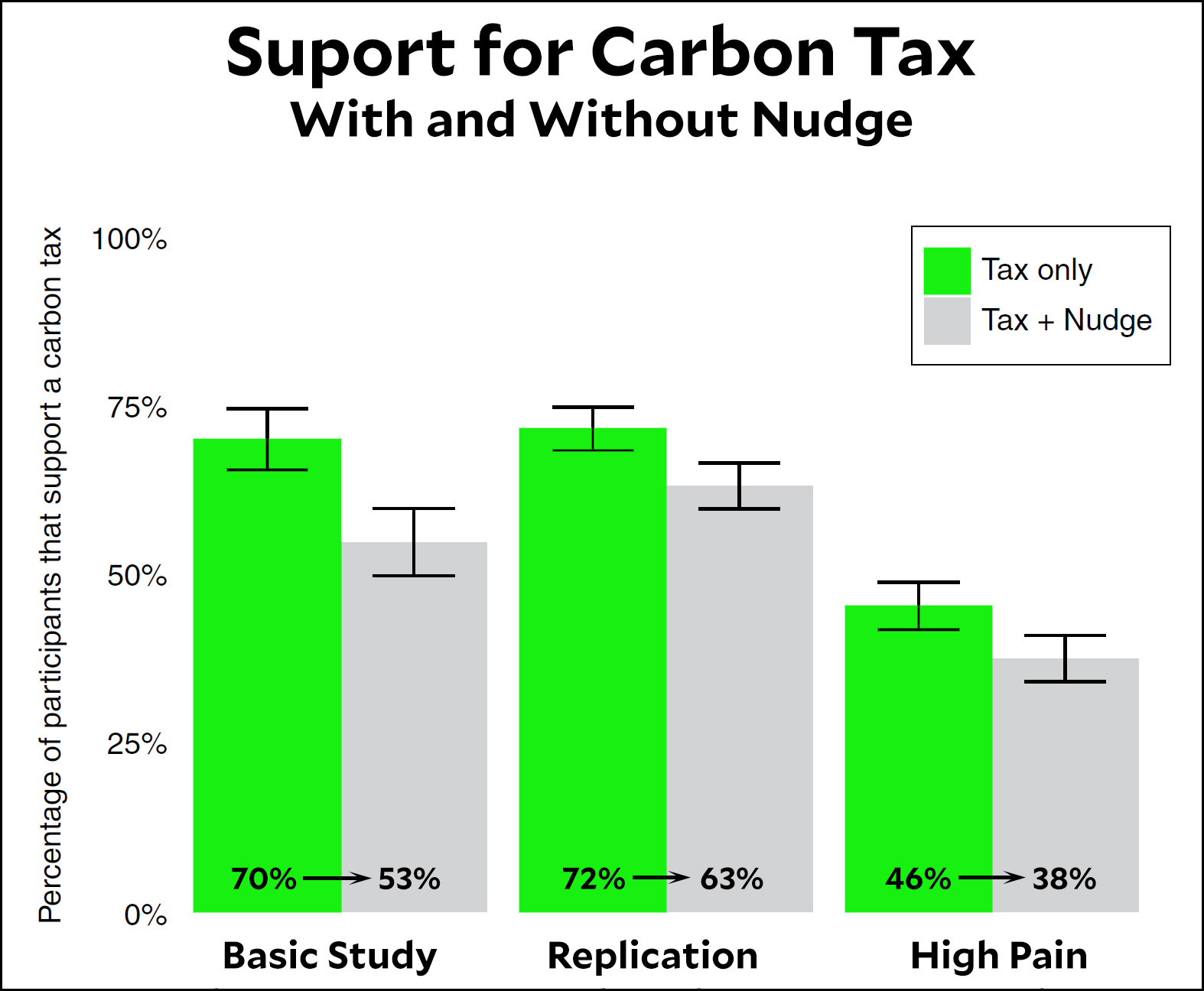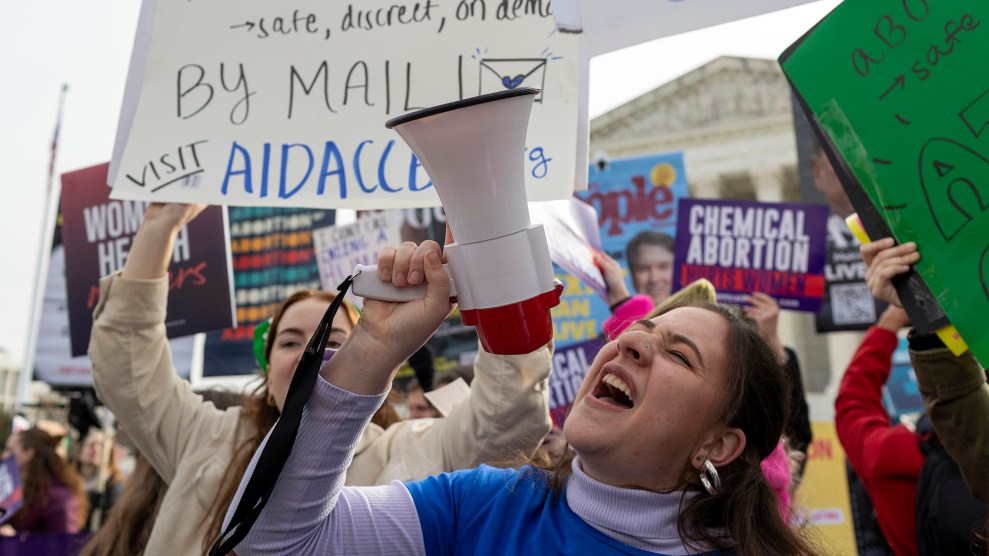Here’s an interesting little study about the way public opinion responds to various climate change messages. It’s a survey study with moderate sample sizes, so don’t take it too seriously, but it suggests avenues for further research. The core part of the study asks people whether they support a carbon tax. Then they’re presented with a “nudge” plan that defaults residential consumers into a renewable energy program and asked again about the carbon tax. Here are the results:

In the first round, 70 percent supported the carbon tax—but after they heard about the renewable energy plan, support dropped to 53 percent. These results were replicated in a second round. Then the researchers performed a third round, this time framing the carbon tax as more painful. Support went down, and when the renewable energy plan was added to the mix, support went down even further.
The rest of the study added some control questions to get at the reason behind the consistent drop in support when the renewable energy plan was added. Here’s the conclusion:
It appears that, while people are generally concerned about societal problems such as climate change, they may not be willing to incur large costs to achieve a solution. With the perceived existence of a low-cost solution (a nudge), motivated reasoning may tempt some to exaggerate its ultimately small environmental impact. This may explain why participants generally thought the nudge was as or more effective at reducing pollution than the carbon tax. However, even those who knew that the carbon tax is more effective than the green energy nudge were discouraged from implementing the tax when a nudge became available, suggesting that crowding-out is not merely the result of incorrect perceptions of relative effectiveness.
I think this is generalizable as support for addressing climate change is a mile wide and an inch deep. Carbon tax? Sure! But add even the smallest reason to abandon it, and people do. Merely reminding them that a carbon tax will raise energy prices cuts support by a third, and if you give people an alternative to latch onto they’ll leap at it. This supports a couple of conclusions:
- Doomsday climate scenarios are important. Support for change is thin, which probably means that most people simply don’t understand how bad climate change is going to get.
- Policies that address things like plastic straws or lowering your thermostat might be counterproductive. They’re mostly performative, but they convince people that they’re “doing something” about climate change and gives them an excuse to lower their support for real measures that are actually effective.
It’s easy to look at polls and declare that big majorities support liberals on climate change. But those polls are nearly meaningless. As this study shows, support for climate policies drops dramatically when faced with even tiny changes in messaging. Just consider how this carbon tax question would have gone if it had instead faced the headwind of an opposition that can fund huge amounts of scaremongering. Support would drop like a stone. That’s the real world we live in.














